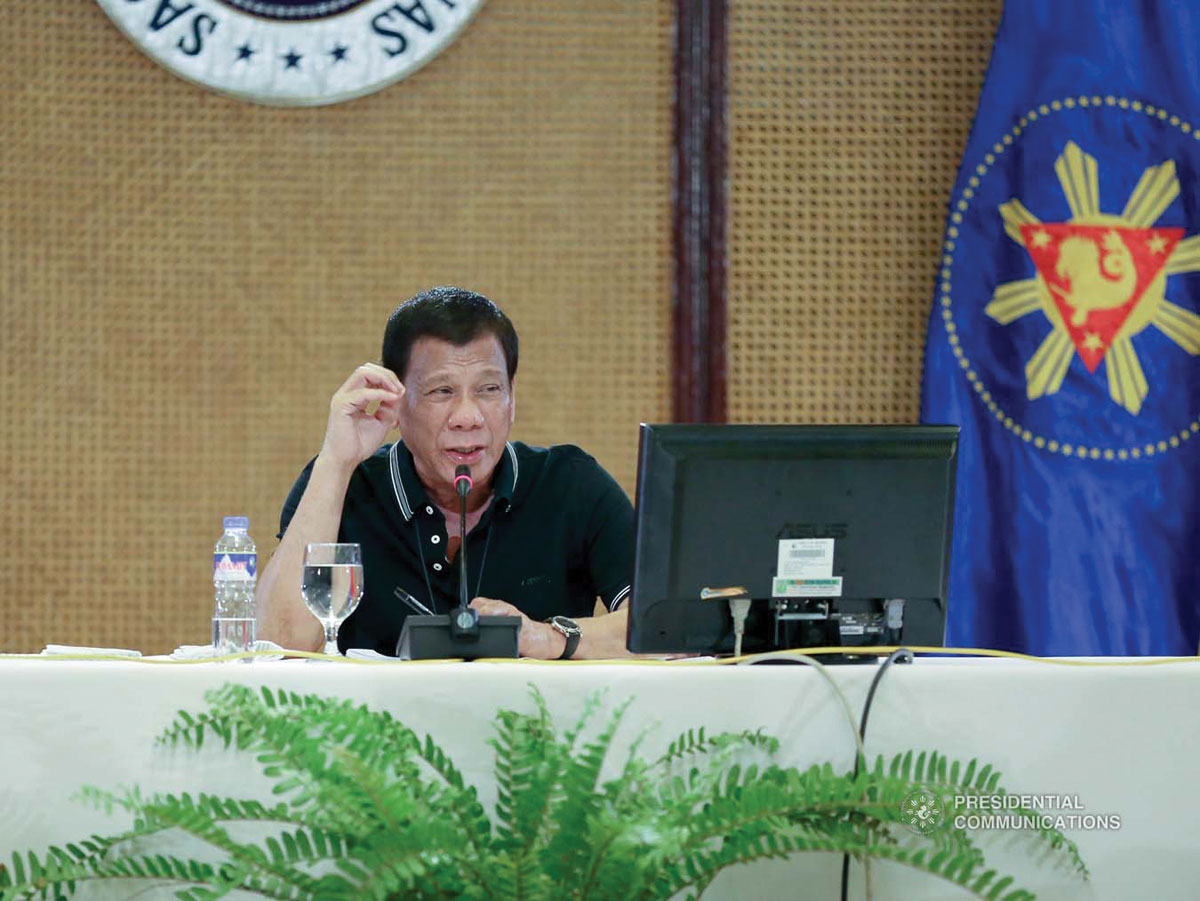
President Rodrigo Duterte has placed the Philippines under a state of calamity in an attempt to contain the spread of the novel coronavirus disease (COVID-19).
He signed Proclamation 929 on Tuesday, March 17, which declares a state of calamity for a period of six months unless lifted earlier extended “as circumstances may warrant.”
The declaration enjoins all government agencies and local government units (LGUs) to render full assistance in combating the spread of the disease.
“All government agencies and LGUs are enjoined to render full assistance to and cooperation with each other and mobilize the necessary resources to undertake critical, urgent, and appropriate disaster response aid and measures in a timely manner to curtail and eliminate the threat of COVID-19,” stated Duterte’s proclamation.
His declaration also directs law enforcement agencies, with the support from the Armed Forces of the Philippines, “to undertake all necessary measures to ensure peace and order.”
Enhanced community quarantine
Duterte on Monday, March 16 placed Luzon on an enhanced community quarantine to contain the spread of virus in the country.
“I have come to the conclusion that stricter measures are necessary. For this reason, pursuant to my powers as President under the constitution and RA 11332, I am placing the entire mainland of Luzon under enhanced community quarantine until April 12, 2020,” he said in a nationally televised address.
This comes after problems with the community quarantine protocol cropped up on the first day of the work week, such as failed social distancing due to cramped public vehicles, road congestion, and checkpoint issues.
According to a Palace memo issued over the weekend, an enhanced community quarantine suspends mass public transport, and land, air, and sea travel. It also implements a strict home quarantine for every household, regulates provisions for food and essential health services, and heightens the presence of uniformed personnel to enforce quarantine procedures.
Presidential Spokesperson Salvador Panelo earlier said that food and essential needs will be delivered to houses by local government units (LGUs).
“The respective LGUs will have to create a system where food and essential needs will be delivered to the homes of the communities. In other words, we will not allow a rush to get food and supplies because there will be sufficient food and supply,” he added.
Duterte urged the public once again to stay inside their homes.
“Everyone will stay at home, leaving their houses only to buy food, medicine, and other things necessary for survival,” he said.
Private establishments providing basic necessities such as those related to food and medicine production are allowed to operate with skeleton force. Among those businesses include public markets, supermarkets, groceries, convenience stores, hospitals, medical clinics, pharmacies and drugstores, food preparation and delivery services, water-refilling stations, and banks.
Malls in Metro Manila, meanwhile, have already announced their temporary closure until further notice.
As the enhanced community quarantine suspends work, Duterte also urged major companies to release in advance their employees’ 13-month pay or half of their salaries to help them weather disruptions in their livelihood amid the COVID-19 outbreak.
“Those big enterprises here, maybe you can consider paying the 13th month pay or just pay them half of their salary if the employees lose their jobs as a way of showing your solidarity to Filipinos at this critical time,” he said.
According to Paranaque Mayor Edwin Olivarez, the head of the Metro Manila Mayors Council (MMMC), workers who have to report for work might have to walk to their offices during the quarantine period since public transportation is suspended.
Business owners, meanwhile, are urged to close their establishments if the outbreak in the country worsens.
“That’s an order because you will help in propagating the disease instead of helping,” Duterte said.
Different cities in Metro Manila have implemented a curfew from 8 p.m. to 5 a.m. during the quarantine period — among them are Caloocan, Las Piñas, Makati, Mandaluyong, Manila, Muntinlupa, Pasay, Pasig, Quezon City, San Juan, and Taguig.
As of writing, there are a total of 187 confirmed cases of COVID-19 in the country, with 14 fatalities and four recoveries.
Quarantine violators may face arrest
Justice Secretary Menardo Guevarra on Monday said anyone violating the measures of the “enhanced community quarantine” may face arrest.
“Violators of the enhanced community quarantine may be arrested and charged under Article 151 of the [Revised Penal Code] which punishes resistance and disobedience to a person in authority or the agents of such person,” he said.
Guevarra added that police and other law enforcement agents may enforce arrest against violators of quarantines, “considering the gravity of the present situation,” under Republic Act 11332, which is the “Mandatory Reporting of Notifiable Diseases and Health Events of Public Health Concern Act.”








